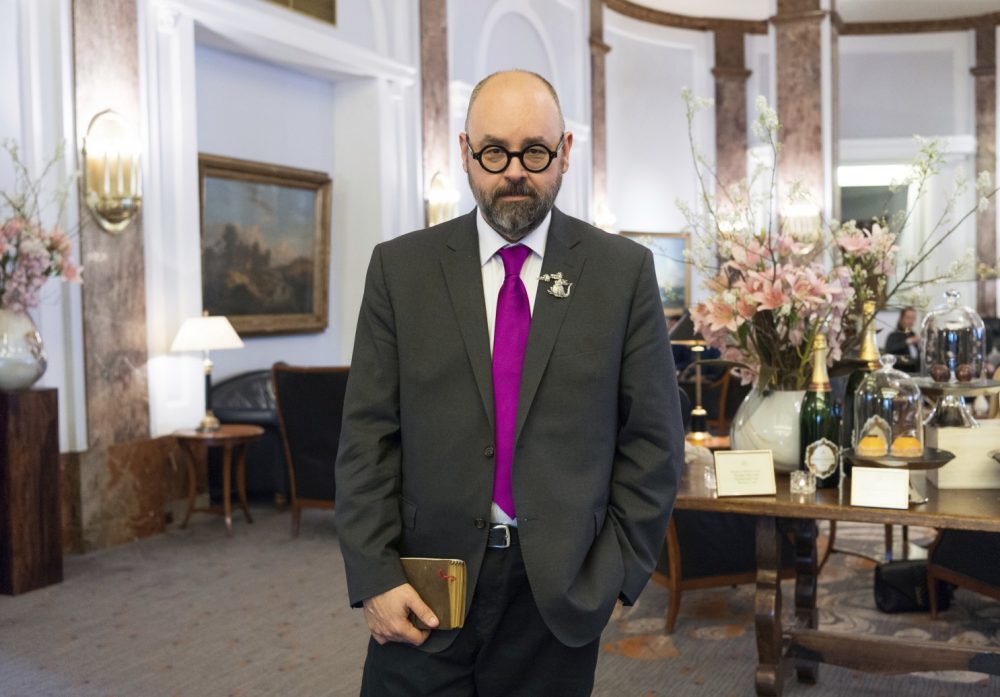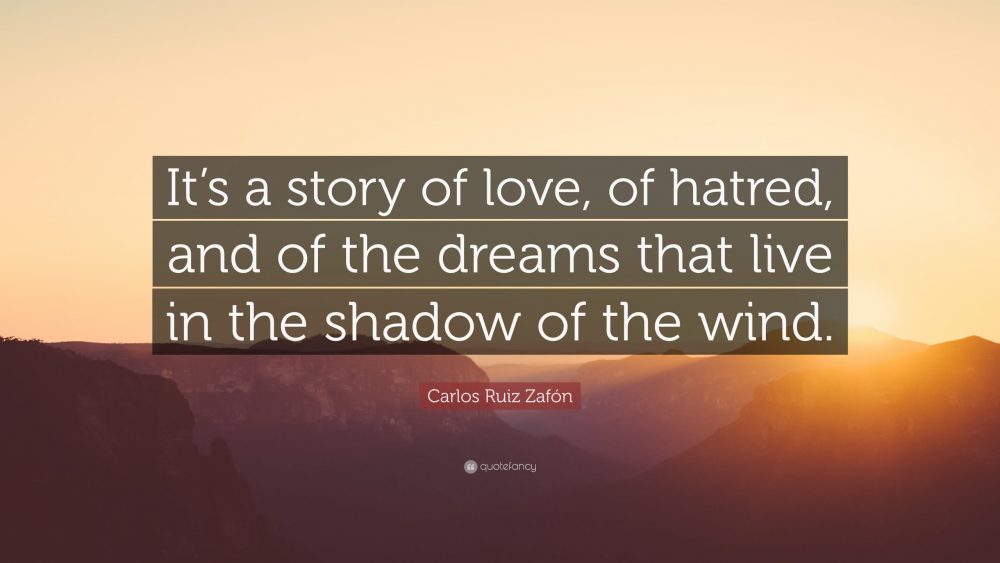The Shadow of the Wind, Carlos Ruiz Zafón, Spain, 2001
 When, at the beginning of this book, I read ‘Every book (…) has a soul. The soul of the person who wrote it and of those who read it and lived and dreamed with it.’ my interest was well and truly captured. When, a few pages later, Daniel, aged ten, is taken to the Cemetery of Forgotten Books by his father and is told to select a book, adopting it ‘… making sure that it will never disappear, that it will always stay alive.’ I was quite certain that I was in for a brilliant read.
When, at the beginning of this book, I read ‘Every book (…) has a soul. The soul of the person who wrote it and of those who read it and lived and dreamed with it.’ my interest was well and truly captured. When, a few pages later, Daniel, aged ten, is taken to the Cemetery of Forgotten Books by his father and is told to select a book, adopting it ‘… making sure that it will never disappear, that it will always stay alive.’ I was quite certain that I was in for a brilliant read.
I think perhaps that I was expecting the book to go in a more philosophical direction, and it took me a few chapters to accept that the direction was actually that of mystery and romance with a good portion of gothic terror. The book, set in Barcelona, may not have been as I had first imagined it, but it was still a memorable and captivating experience.

Zafón has managed to juggle not only a main plot but a number of sub plots and sub plots to sub plots, together with an awesome cast of characters, all against Spain’s turbulent political history from the 1930s through to the 1950s. His skill in weaving everything together is to be admired. The actual events of the novel mirror the events in the book selected by Daniel (which is also called The Shadow of the Wind), and at times it is difficult to know where the reality of the novel ends and the fictional story begins – the crossovers are seamless.
In the book, The Shadow of the Wind, written by Julián Carax, a man known as Laín Coubert (who may or may not be the devil) is burning all copies of books by Julián Carax. Already at this stage the plot is convoluted and many layered, and these twists spill over into the reality of the novel when Daniel takes the book home with him.
The characters – the good, the bad and everything in between – are, in the main, believable. Daniel’s friend Fermin adds a touch of humour and even perspective, while Inspector Javier Fumero is the personification of evil. Perhaps the central message of the book is contained in something Julián said: ‘Books are mirrors: you only see in them what you already have inside you.’

I would have liked to have been able to read the book in the original Spanish, as I feel that the translation, though obviously very good, may have added its own layer of interpretation. A lot of the conversation is clichéd, and whether this is the same in the Spanish text or whether it is a defect of the translation is impossible to comment on without knowing Spanish.
The Shadow of the Wind is the first of a four-book series. Hopefully, I will eventually get around to reading the remaining three books.
You can read an interesting review from The Guardian here.